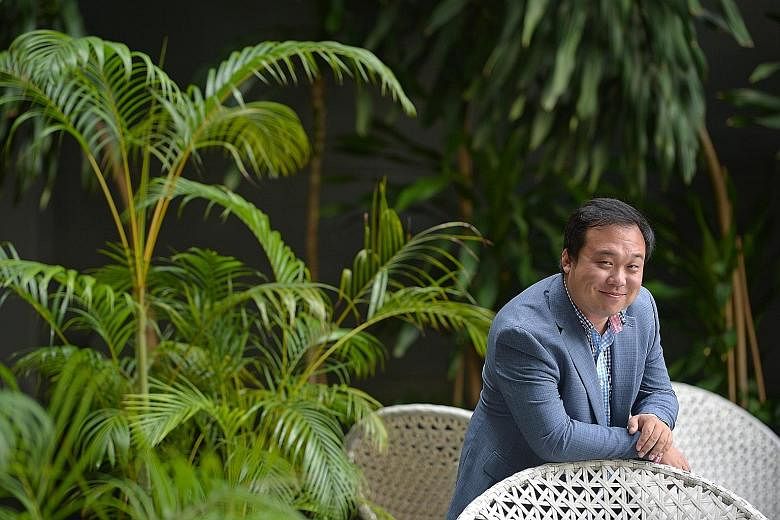Bass-baritone Li Ao thought he would never sing after his voice changed. Then opera showed him there was life beyond Mandopop.
The much-decorated singer from Shandong, China, returns to Singapore next month for two concerts and a masterclass at the Singapore International Festival of Music.
Li, 28, visited Singapore for the first time last month to perform in Paradise Interrupted, a work created by Chinese-American composer Huang Ruo and Emmywinning visual designer-director Jennifer Wen Ma.
His spine-tingling vocals won him first place at Operalia, The World Opera Competition, held in 2013 at Verona, Italy, and the top US$15,000 (S$20,400) prize at the Metropolitan Opera National Council Auditions in 2014.
He is a graduate of San Francisco Opera's coveted Merola programme and Adler Fellowship to train up singers. Shandong Normal University's School of Music considered this training enough to let him graduate with a master's degree - and made him a professor - even though he left for the United States before completing his bachelor's degree.
So Li enters competitions to impress his mentors in China. He says: "In China, they like to see how many conductors you have worked with, how many opera companies you have worked with, but most important is how many prizes you have won." He returns often to visit his parents and to perform and teach.
Li was born in Jinan and brought up in Dezhou, where his parents worked for an oil company. He sang along to Mandopop star Jay Chou's greatest hits until his voice changed at age 12, dashing his dreams of becoming a pop star. "When my voice changed, I thought I was sick. I hated my voice. It was so dark, so low."
Three years later, he heard Italian bass Ferruccio Furlanetto on television was thrilled by the resonant melody of an aria from The Barber Of Seville. "It was so interesting, similar to my voice," he says, breaking into the first few bars.
Years later, he would have the chance to study with Furlanetto, a regular at the San Francisco Opera.
Li's studies at Shandong Normal University were interrupted by a visit from China-born pianist Lydia Qiu, who teaches at the University of Michigan. Moved by his voice, she took him to the US in 2010, hosted him rent-free for weeks and sent him to auditions for music schools.
Li got into Juilliard on a scholarship, but Qiu's mentor, noted accompanist Martin Katz, made him audition for training programmes by San Francisco Opera and the Metropolitan Opera in New York. Li got into both, but says he chose San Francisco because of the city's large Chinese community.
"My English was, like, zero at the time. I could only speak: 'How are you?' When people said: 'I'm fine, how are you?' I said: 'G-g-g-good?' I sounded like that."
Today, like any opera singer, he is comfortable in multiple European languages, including French, Russian, German and Italian.
He will perform Chinese folk song Rainbow Sisters at a recital here on Oct 15. He says Mandarin is the hardest language to sing in.
"Mandarin songs have intonation and also melody," he says. "Sometimes, the pitch conflicts with the notes. It's so hard."
Akshita Nanda
•For more information on Li Ao's appearances at the festival, go to www.sifom-sg.com


